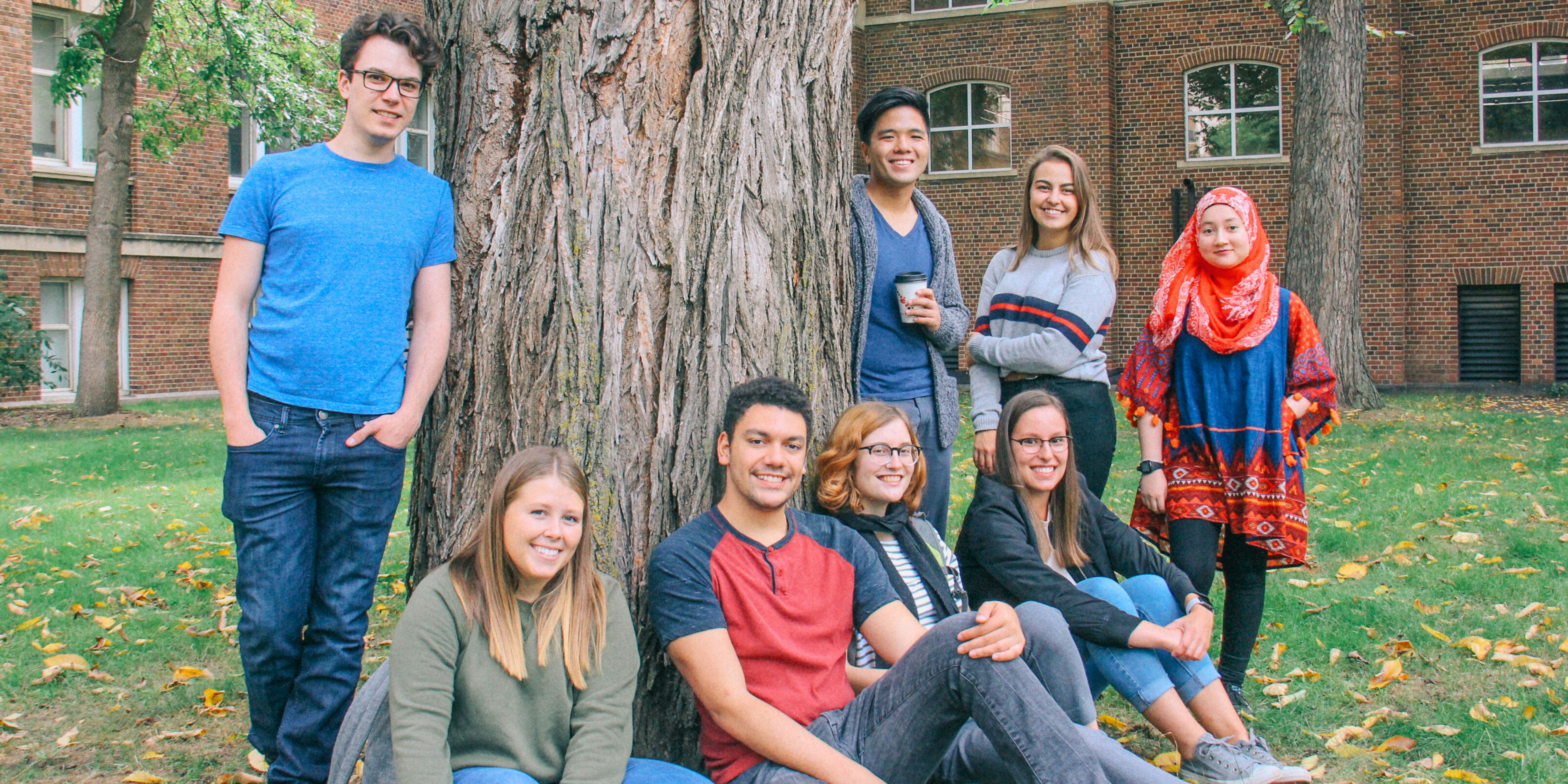Bachelor of Arts in Sociology Degree Program Guide

Sociology combines the rigour of a scientific discipline with a concern for social relevance. As a Sociology student, you will study social life, social change, and the social causes and consequences of human behaviour. Sociologists investigate the structure of groups, organizations, and societies and how people interact within these contexts.
The deeper understanding of society students gain from the Sociology program will lead them to an improved understanding of social issues and how they might be better addressed through enlightened and effective social policy.
Academic Requirements for Sociology Majors
- SOC 100 - Introductory Sociology
- SOC 210 - Introduction to Social Statistics
- SOC 212 - Classical Social Theory
- SOC 315 - Introduction to Social Methodology
- SOC 335 - Themes in Contemporary Social Theory
- 6 units in SOC at the 300- or 400-level
- 6 units in SOC at the 400-level
- 6 units are required from your choice of:
- SOC 241 - Social Psychology
- SOC 251 - Population and Society
- SOC 260 - Inequality and Social Stratification
- SOC 269 - Introductory Sociology of Globalization
- R SOC 355 and R SOC 450 have been approved for cross-listing as applicable to a major or minor in Sociology (see Cross-Listed Courses)
Academic Requirements for Sociology Minors
- Students selecting Sociology as a minor must complete 18 units from specific SOC courses.
- SOC 100 - Introductory Sociology
- 3 units from your choice of:
- SOC 210 - Introduction to Social Statistics
- SOC 224 - Sociology of Deviance and Conformity
- SOC 225 - Criminology
- SOC 241 - Social Psychology
- SOC 251 - Population and Society
- SOC 260 - Inequality and Social Stratification
- SOC 269 - Introductory Sociology of Globalization
- SOC 271 - Introduction to the Family
- 6 units from 300- or 400-level SOC courses
- 6 units from your choice of any other SOC courses
The University of Alberta Calendar will always contain the most up-to-date degree requirements for your program, and your requirements are determined by the calendar year you were admitted in.
What kinds of courses can Sociology students take?
- SOC 100 - Introductory Sociology
- SOC 203 - Social Problems
- SOC 210 - Introduction to Social Statistics
- SOC 224 - Sociology of Deviance and Conformity
- SOC 251 - Population and Society
- SOC 260 - Inequality and Social Stratification
- SOC 301 - Sociology of Gender
- SOC 377 - Sociology of Youth
- SOC 486 - Sociology of Mental Health and Illness
- SOC 423 - Crime and Public Policy
- SOC 424 - Gangs and Violence
What kinds of careers can you pursue with a Sociology degree?
There are many different fields and career paths that students can pursue with a Sociology degree. From public policy to community services, graduates are equipped with empathy and cultural awareness, critical thinking, and research skills to name a few, that are assets in today’s job market. Although there is a list of career options below, it is important to understand that careers are not linear. Intentionally engaging in a variety of activities and following your curiosities will open new opportunities that you might not have expected. To learn more about how you can put your Arts degree to work, stop by the HUB Career Centre (8917 HUB Mall) for more information.
- Policy Analyst
- Public Affairs Specialist
- Community Engagement Professional
- Academic Advisor
- Probation Officer
- Human Resources Specialist
- Training and Development Coordinator
- Educator (Professor, Secondary or Primary)
- Communications & Marketing Associate
- Corporate Social Responsibility (CSR) Manager
- Diversity and Inclusion Specialist
- Customer Experience Coordinator
- Youth Counselor
- Community Outreach Worker
- Volunteer Coordinator
- Social Worker
- +More!
Interested in gaining work experience related to your career goals? If so, apply to Arts Work Experience to gain full-time, PAID, work experience before you graduate!
Important Links
- Department website
- Students’ association information
- Full program overview
- Prospective student information and application
- Graduate studies information
- Current Arts student advising
Department Contact Information
- Department Undergraduate Student Advisor email: socundergrad@ualberta.ca
- Department Undergraduate Student Advisor phone number: 780-492-0468